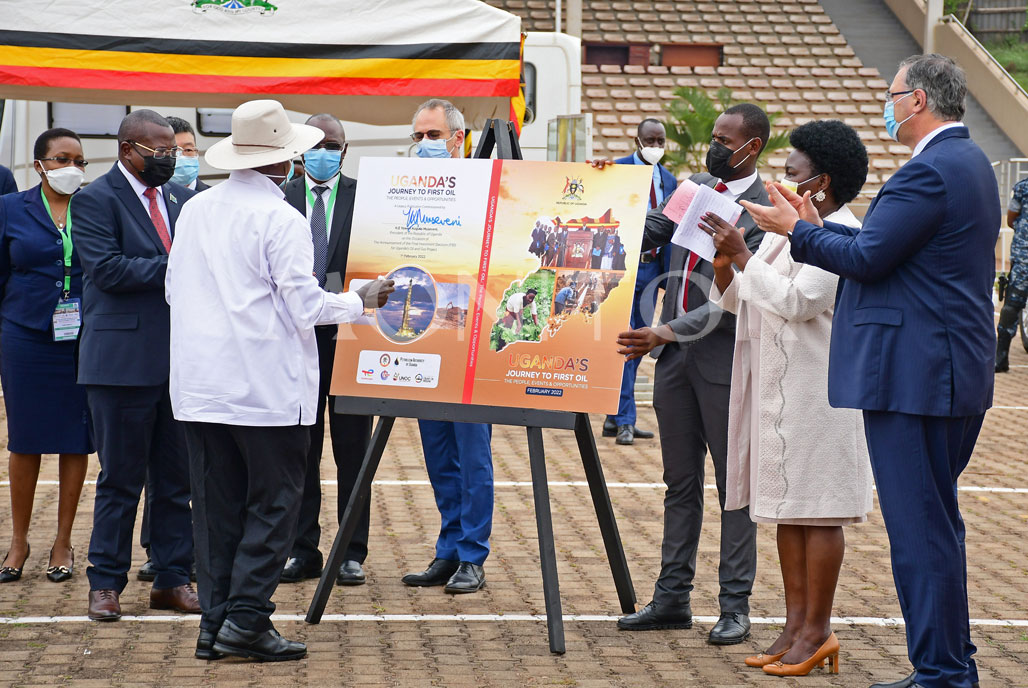Providing reserved goods and services in oil industry

A waitress organises tables in a restaurant in Kampala Nile Resort in Kampala Industrial Park, Namanve. PHOTOs/Joseph Kiggundu
What you need to know:
Supplying 16 categories of goods and services is exclusively reserved for Ugandan companies. But there are exceptions within the law subject to the approval of PAU or via commercial structuring where non-Ugandan companies can actually participate in providing reserved goods and services, Dennis Kakembo writes.
To maximise the participation of local enterprises in the oil and gas value supply chain, Uganda has enacted robust national content requirements that are being enforced to the letter by the Petroleum Authority of Uganda (“PAU”). The supply of 16 categories of goods and services is exclusively reserved for Ugandan companies. This notwithstanding, there are exceptions within the law subject to the approval of PAU or via commercial structuring where non-Ugandan companies can actually participate in the provision of reserved goods and services as we highlight in this article.
Ugandan company for oil and gas
Reserved goods and services in Uganda’s oil and gas sector as a requirement of the law must be supplied by Ugandan companies. A Ugandan company for oil and gas purposes is not one necessarily owned by a majority of Ugandan citizens. A majority foreign owned entity can be a
Ugandan company to the extent it is incorporated locally, employs at least 70 percent of Ugandans and uses locally available goods and services.
Despite the push by some stakeholders to peg qualification as a Ugandan company for oil and gas purposes to majority shareholding by Ugandan nationals, the rationale of the current definition can easily be understood. National content is mostly about ensuring that the labour, services and goods being used by the industry are provided from within the country.
Locking out foreign investors with the ability to generate domestic capacity for oil and gas contracts to be executed locally would have been adverse to Uganda’s national content aspirations. What the country would achieve through denying the participation of non-nationals would be “Ugandanising” the sector but not necessarily localising opportunities accruing from the oil and gas sector.
The reserved goods and services in Uganda’s oil and gas sector are transportation, security, foods and beverages, hotel accommodation and catering, human resource management, office supplies, fuel supply, land surveying, clearing and forwarding, crane hire, locally available construction materials, civil works, the supply of locally available drilling and production materials, environment studies and impact assessment, communications and information technology services and waste management services to the extent possible.
Creating a joint venture
A foreign company can participate in the supply of reserved goods and services in Uganda’s oil and gas sector by creating a joint venture (“JV”) that is approved by the Petroleum Authority of Uganda (PAU) with a qualifying Ugandan company. For the upstream oil and gas subsector, the Ugandan company should have a participating interest of at least 48 percent in the JV. There is no threshold for participating interest in the JV for midstream oil and gas activities.
The parties seeking the approval of a JV should present an executed JV agreement that has been registered with the Uganda Registration Services Bureau mainly highlighting the scope of work to be performed by either party, the way the Ugandan company shall ably participate financially, technically and personnel wise. The JV agreement should also explicitly provide for the joint and several liability of the parties.
The parties to the intended JV should both be registered on the National Suppliers Database (“NSD”) in the case of an unincorporated JV. If the parties incorporate a joint venture company, it must have separate NSD registration from the JV shareholders.
The deals
Reserved goods
The reserved goods and services in Uganda’s oil and gas sector are transportation, security, foods and beverages, hotel accommodation and catering, human resource management, office supplies, fuel supply, land surveying, clearing and forwarding, crane hire, locally available construction materials, civil works, the supply of locally available drilling and production materials, environment studies and impact assessment, communications and information technology services and waste management services to the extent possible.




